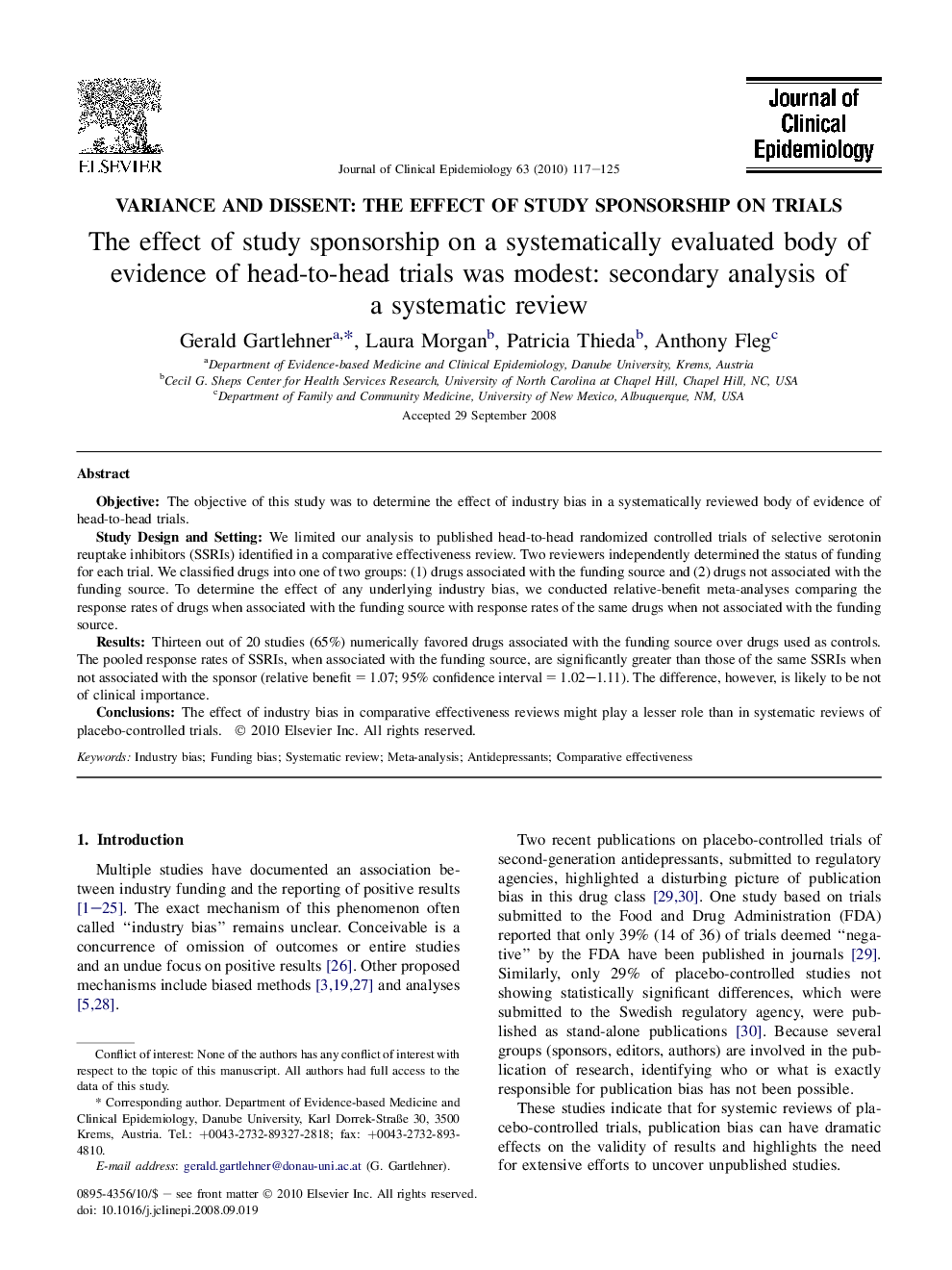| Article ID | Journal | Published Year | Pages | File Type |
|---|---|---|---|---|
| 1082529 | Journal of Clinical Epidemiology | 2010 | 9 Pages |
ObjectiveThe objective of this study was to determine the effect of industry bias in a systematically reviewed body of evidence of head-to-head trials.Study Design and SettingWe limited our analysis to published head-to-head randomized controlled trials of selective serotonin reuptake inhibitors (SSRIs) identified in a comparative effectiveness review. Two reviewers independently determined the status of funding for each trial. We classified drugs into one of two groups: (1) drugs associated with the funding source and (2) drugs not associated with the funding source. To determine the effect of any underlying industry bias, we conducted relative-benefit meta-analyses comparing the response rates of drugs when associated with the funding source with response rates of the same drugs when not associated with the funding source.ResultsThirteen out of 20 studies (65%) numerically favored drugs associated with the funding source over drugs used as controls. The pooled response rates of SSRIs, when associated with the funding source, are significantly greater than those of the same SSRIs when not associated with the sponsor (relative benefit = 1.07; 95% confidence interval = 1.02–1.11). The difference, however, is likely to be not of clinical importance.ConclusionsThe effect of industry bias in comparative effectiveness reviews might play a lesser role than in systematic reviews of placebo-controlled trials.
